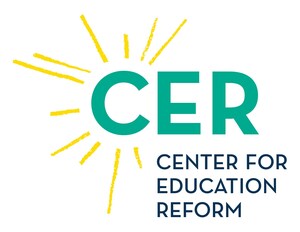The Center for Education Reform Releases the 17th Edition of its National Charter School Law Rankings & Scorecard
WASHINGTON, March 22, 2017 /PRNewswire-USNewswire/ -- The Center for Education Reform (CER) today released its annual ranking of charter school laws for the states and the District of Columbia, giving fewer than a quarter of state charter school laws in the U.S. above-average grades.
"It's a troubling commentary," said CER founder and CEO Jeanne Allen. "Too many laws are not being implemented as envisioned when they were adopted, and it is stifling the effectiveness and growth of charter schools across the country." CER gave above-average grades to only 25 percent of school laws—a significant drop from past rankings, which, as recently as 2014, had half the schools earning above-average marks.
In addition to reviewing the environment for chartering in each state over the past several months, CER consulted more than 100 stakeholders representing three-quarters of schools across the country.
The CER rankings evaluate whether a state's charter school law enables citizens to create schools that are independent in oversight and operations, are beyond the reach of traditional school bureaucracies, have wide latitude to operate and innovate, and provide parents with many options when deciding which schools will best meet the needs of their children. An analysis of the rankings provides further details of the charter law scorecard.
One of the key findings of the research conducted for this year's report was the identification of what the analysis described as "uber authorizers"—new, or existing, regulatory bodies that are given the power to regulate and revise rules.
"The uber-authorizer provisions put state agencies in control, which is the antithesis of the core philosophical concept of charter schools: that they're independent of such control and free to innovate, experiment, and offer opportunities that aren't found in traditional schools," said Allen.
In the current assessment only the District of Columbia, Arizona and Indiana were given an A. Those earning B's were: Michigan, Minnesota, Colorado, California, Florida, New York, Massachusetts and South Carolina.
Compared to its 2015 rankings, CER lowered the grades of 13 states: Minnesota and Michigan from A to B; Utah, Missouri and Idaho from B to C; Delaware, Oregon, Washington, Hawaii, Maine and Illinois form C to D; and Alaska and Iowa from D to F.
The two states that improved their rankings the most from 2015 to 2016 were Massachusetts, which jumped from 27th place to 10th and North Carolina which moved from 23rd place to 13th. Three states experienced double digit drops in their rankings: Washington fell from 28th to 40th, Delaware dropped from 21st to 31st, and Ohio went from 14th to 24th.
Joining the pack this year for the first time is Kentucky, ranked as if it were implemented as written in law. Because of uncertainty over funding and other issues, it merits only a high D.
About the Center for Education Reform
Founded in 1993, the Center for Education Reform aims to expand educational opportunities that lead to improved economic outcomes for all Americans — particularly our youth — ensuring that the conditions are ripe for innovation, freedom and flexibility throughout U.S. education.
Center for Education Reform - 1901 L Street, NW – Suite 705 – Washington, DC 20036 – 202-750-0016 – edreform.com
SOURCE Center for Education Reform
WANT YOUR COMPANY'S NEWS FEATURED ON PRNEWSWIRE.COM?
Newsrooms &
Influencers
Digital Media
Outlets
Journalists
Opted In





Share this article